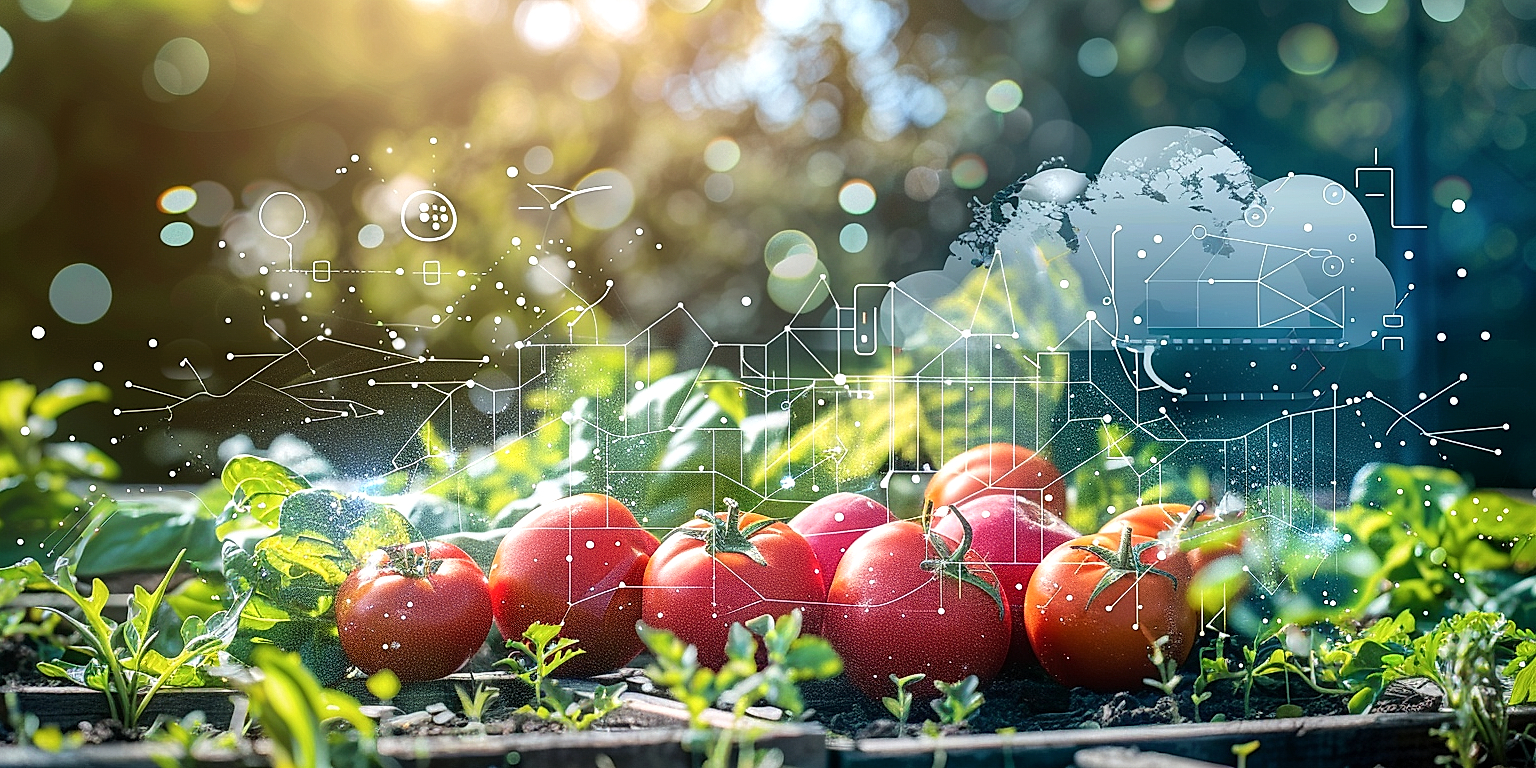Environmental compliance is not just a buzzword, but an imperative for all businesses engaged in the produce retail sector.
Being compliant brings reputational benefits, but also poses a series of challenges.
This blog post will explore these complexities and offer effective strategies to align with governmental standards, while ensuring sustainability.
It will cover aspects such as waste management, reduction of carbon footprint and fair trade practices.
In an era of increased scrutiny and with customers prioritizing environment-friendly products, it’s vital for retailers to integrate sustainability into their operations.
By understanding and implementing these strategies, produce retailers can achieve environmental compliance and drive their business forward.
Contents
Strategies For Environmental Compliance In Produce Retail
1. Implement waste reduction programs
As a business, it is important to recognize the impact our activities can have on the environment.
This is why adopting waste reduction programs are a crucial part of a strategy for environmental compliance in produce retail.
These programs can be as simple as introducing recycling bins for paper and plastic, or as complex as implementing a comprehensive waste management plan that includes management of food waste, packaging, and non-recyclable waste.
Part of a successful waste reduction program is ensuring that it is integrated into the operations of the business.
For example, it should be a routine part of everyday tasks, such as the handling of produce, packaging, and shipping procedures.
Moreover, it should be a factor when making decisions about purchasing new equipment or supplies, as buying environmentally friendly options can significantly reduce waste.
This holistic approach to managing waste can result in deeper, more meaningful change across the whole company, and move it towards becoming a more environmentally friendly operation.
By reducing waste, a retail store can also realize a number of financial benefits.
For instance, fewer resources need to be allocated towards waste disposal, and recycling can provide some financial return.
Furthermore, it can create a positive image for the retail store amongst customers who are increasingly aware of environmental issues, and who prefer to support businesses that are working towards being more sustainable.
However, it’s important to recognize that implementing waste reduction programs is not always an easy task.
It requires an investment of time and resources, particularly when it comes to educating and training staff.
Regularly monitoring and reviewing the program’s effectiveness is also a necessary part of the process.
This is why it’s crucial to get buy-in from everyone involved, from the leadership team to the staff on the floor, to ensure the successful implementation of waste reduction programs.
Overall, while implementing waste reduction programs may pose challenges, the benefits to the environment, business, and staff make it an essential part of a strategy for environmental compliance in produce retail.
2. Train Staff on Environmental Regulations
One of the crucial steps in establishing strategies for environmental compliance in produce retail is to educate the staff effectively about environmental regulations.
Without a sound understanding of these laws, workforce members may not realize the significance of keeping the business in line with environmental requirements.
Staff training on environmental regulations is not only a fundamental activity but also a proactive step that can prepare your employees to handle situations related to environmental concerns efficiently.
Effective training is the backbone of any successful environmental compliance strategy, it equips staff with the necessary knowledge to adhere to regulations consistently.
Training enables your employees to understand the environmental impacts of their actions, empowering them to make decisions that benefit both the company and the environment.
It’s also important to remember that teaching is not a one-time exercise. In a rapidly evolving field like environmental awareness, ongoing training is key.
Continuous training programs ensure that your staff always has the most updated knowledge regarding environmental regulations impacting your produce retail store.
The method of training, whether in person or online, should be carefully determined based on the needs of the business and the preferences of its employees.
Interactive trainings, using real-life examples and scenarios, can be advantageous for employees to intuitively understand and apply environmental regulations in the context of their daily responsibilities.
Furthermore, employees who are well-trained in environmental regulations are also more likely to present ideas and suggestions for improvements in business practices, which can contribute to shaping the business’s overall strategy for environmental compliance.
The importance of environmental regulations also extends beyond the business’s physical locations.
Employees who understand these regulations will be more equipped to manage relationships with vendors and customers in an environmentally sensitive manner.
They can ensure that the business operates in a way that aligns with environmental best practices, thus promoting not just compliance, but also corporate social responsibility.
Ultimately, training your staff in environmental regulations is an investment in your business.
Not only does it equip your employees with critical skills and knowledge, but it also demonstrates your business’s commitment to taking care of the environment.
3. Adopt Sustainable Sourcing Practices
In the produce retail industry, sustainable sourcing practices are crucial in attaining environmental compliance.
This involves procuring goods and services that are created and delivered in an environmentally friendly manner.
For instance, sustainability can be achieved through purchasing from suppliers who conform to environmental regulations, use renewable resources, and minimize waste.
Promoting sustainable sourcing has the dual advantage of not only contributing to environmental preservation but also enhancing the company’s public reputation.
Consumer awareness about environmental issues is growing, thus businesses that demonstrate environmental stewardship tend to be more appealing to the market.
Sustainable sourcing is not merely about the products themselves but also the packaging materials used.
Opting for recyclable or biodegradable packaging instead of plastic is one of the ways to promote sustainability.
In addition, transportation used in the supply chain should aim to reduce carbon emissions.
This calls for the inclusion of efficient logistics solutions and the use of vehicles that emit minimal greenhouse gases.
Moreover, produce retailers can promote sustainable sourcing by implementing a supplier code of conduct.
This ensures suppliers meet the agreed-upon environmental practices before securing a contract.
Essentially, the adoption of sustainable sourcing practices goes beyond merely complying with environmental regulations.
It has a broader impact on a company’s brand image, customer perception and overall success in the market place.
Lastly, while implementing such practices, it is paramount to maintain transparency and traceability in the supply chain.
This enables customers and stakeholders to understand the environmental footprint of the products they consume, promoting trust and loyalty.
4. Perform Regular Environmental Audits
Performing regular environmental audits holds a central position in achieving environmental compliance in the produce retail industry.
An environmental audit is a systematic, documented verification process to obtain and evaluate evidence objectively.
It determines whether specified environmental activities, events, conditions, or management systems conform to the audit criteria.
Importantly, the audit criteria are as set by the organization itself or external entities such as regulatory bodies.
Within the context of a produce retail environment, a regular environmental audit could include the evaluation of waste management practices.
In this case, an organization can measure the effectiveness of recycling programs, examine the type and quantity of waste produced, and establish whether the waste is being disposed of in a compliant manner.
Moreover, audits can assess the use and disposal of hazardous substances, checking whether suitable protective measures are in place to prevent environmental contamination.
A systematic environmental audit allows companies to identify potential areas of non-compliance in their operations.
Another crucial aspect of regular environmental auditing is the monitoring of energy usage.
This involves scrutinizing energy sources, the efficiency of energy use, and the implementation of energy-saving measures in the produce retail setting.
Checking the sourcing and use of water is another key audit component, particularly in dry regions where water is a scarce resource.
Regular environmental audits also perform a crucial role in training staff and raising awareness about environmental regulations.
This involves testing employees’ knowledge of the procedures to follow in a variety of potential situations, such as an environmental spill or contamination incident.
Ultimately, through regular environmental audits, businesses can effectively measure their progress towards environmental goals and the success of various impact-minimizing strategies.
These audits foster continual improvement, helping produce retail companies to evolve their practices in line with emerging science and changing regulatory frameworks.
Therefore, it can be argued that regular environmental audits are the backbone of a successful, future-proof environmental strategy in produce retail.
5. Install Energy-Efficient Systems
Adopting energy-efficient systems can be a vital part of a company’s broader strategies for environmental compliance in the produce retail environment.
Choosing more efficient energy sources, such as renewable energy or lower emission fossil fuel alternatives, can significantly lower a business’ carbon output.
Improving insulation and ventilation, using energy-efficient lighting and hardware, and utilizing smart technology can contribute significantly to reducing energy waste.
The savings of energy lead to a decrease in costs for the business and presents a more sustainable image to customers who are becoming increasingly conscious of environmental impacts.
By incorporating energy-saving strategies, not only does a business contribute to mitigating environmental damage, but it can see significant financial benefits in the long-term due to decreased general operation, maintenance costs, and potential governmental benefits.
It is an important move for a business to performing an energy audit that can identify areas where energy is being wasted and suggest ways to improve efficiency.
One of the key areas to focus on while seeking more energy efficiency is within refrigeration, which tends to be a significant energy consumer in produce retail.
Using modern refrigeration systems that are designed to be more efficient or upgrading older systems to improve efficiency can have a massive impact on energy usage.
Ensuring systems are regularly maintained and kept in good condition also ensures they are working at their most effective and efficient.
Another aspect that often goes overlooked in energy efficiency is the training and behavior of staff.
Simple measures such as turning off lights when not needed, maintaining a reasonable thermostat setting, and careful use of equipment can all contribute to overall efficiency savings.
Digitization and smart technology can play a role in ensuring compliance with energy efficiency measures by monitoring energy usage and highlight areas where efficiency can be improved.
Purchasing products and equipment with an Energy Star rating or other recognized efficiency rating can ensure you are choosing products that align with your energy efficiency goals.
Implementing energy-efficient practices sends a clear message to customers that your business is committed to sustainability and environmental compliance.
The strategic implementation of energy-efficient systems should be an ongoing endeavor for every business, especially in the highly competitive landscape of the produce retail industry.
The Bottom Line
The necessity for businesses to adopt eco-friendly practices cannot be overemphasized.
Strategies such as implementing waste reduction programs, providing environmental regulations training, embracing sustainable sourcing practices, and conducting regular environmental audits significantly contribute towards sustainable growth.
Moreover, the transition towards energy-efficient systems not only benefits the environment but also greatly reduces operational costs.
Thus, these transformative and vital steps tremendously enhance a company’s capacity to achieve environmental sustainability while facilitating long-term business prosperity.




